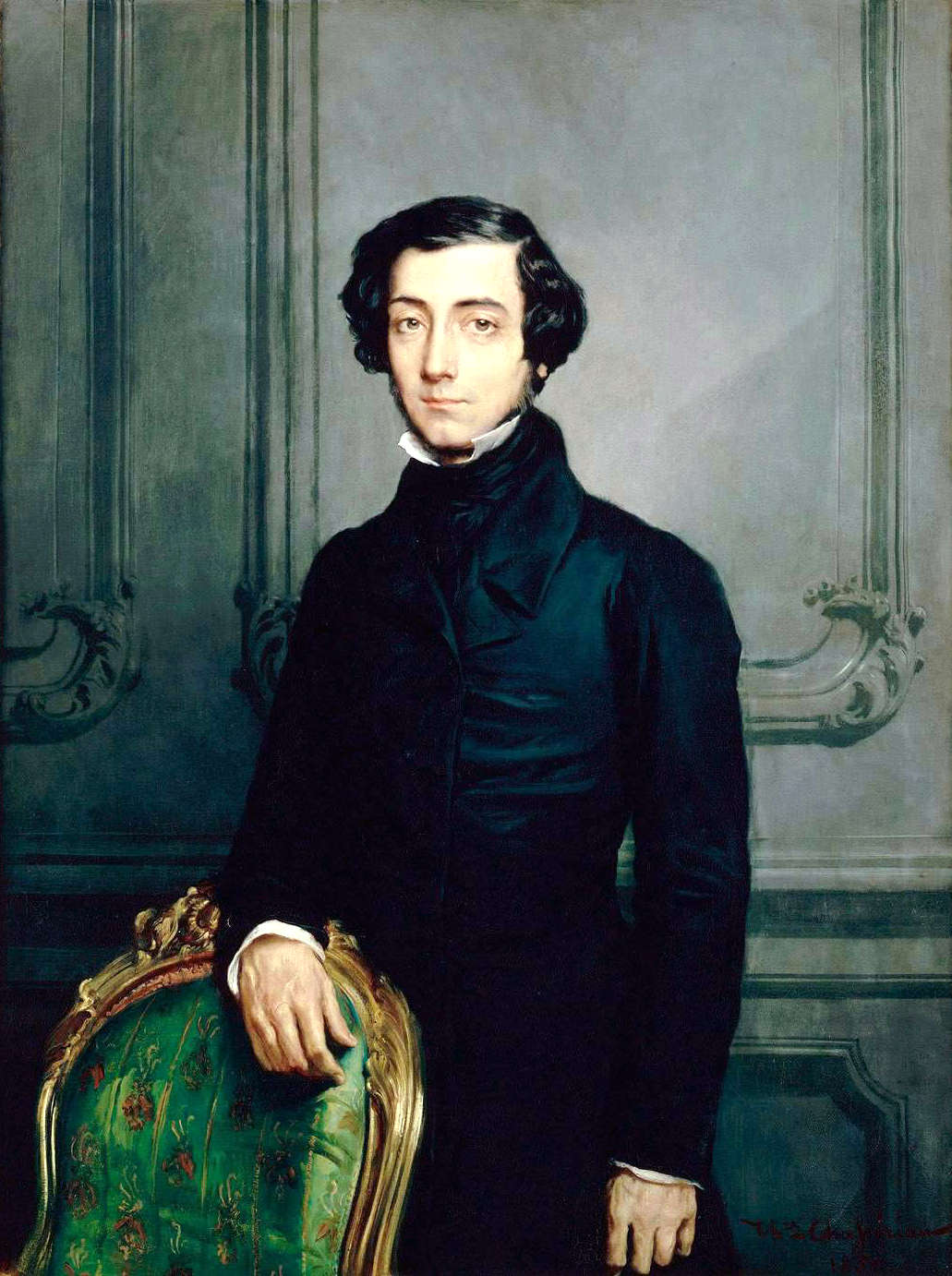Last week I had the privilege of leading my History of American Thought class at Baylor through Alexis de Tocqueville’s Democracy in America. This is one of the most intriguing, and in some cases most chilling, analyses of the American republic ever written. Composed by the visiting French aristocrat in the 1830s, Democracy in America argued that America’s strength came from its religious heritage, its tradition of local participatory politics, and its many mediating institutions and civic associations, all standing between the individual and the government.
In the second of two volumes, Democracy in America became darker in outlook, suggesting that American democratic culture might contain the seeds of its own demise. One day, as Americans turned away from those mediating institutions, the national government might become despotic. This would not be a tyrannical despotism, however, but a kind of “guardian” despotism. Tocqueville wrote
I see a mob of people, all alike and equal, perpetually going around in circles in pursuit of the petty, common pleasures to satisfy their souls…Above them stands a powerful schoolmaster, whose whole responsibility is to guarantee their pleasure and watch over them. He is absolute, conscientious, methodical, all-knowing, and kind…his goal is to keep them in perpetual infancy; he wants citizens to enjoy themselves, as long as pleasure is all they think about. He will work hard on their behalf; but he wants to act alone, the ultimate arbiter; he will keep them safe, provide for their needs and ensure their comfort, conduct all business and direct all work, manage their inheritances, divide their property; why not remove the need for them to think at all, or deal with any of life’s problems?…
Having finally placed every individual under his control, shaping the individual to his will, the all-powerful ruler wraps his arms around the entire society; he covers it with a network of complex little rules, uniform and petty, from which even the most original minds and hearty souls cannot see their way clear.
How did Tocqueville see this in 1831, when the American government was so tiny? The only agency of the national government one was likely to encounter in daily life in 1831 was the post office. Yet Tocqueville somehow saw within American democracy a potential for decline, in which trivialization of American minds, centralization of national power, and the decay of the mediating institutions would slowly lead to paternalistic despotism.
Have we seen the complete fulfillment of Tocqueville’s uncanny vision? Perhaps not: church attendance remains strong in America in spite of apocalyptic warnings of its collapse. We still have a functioning free press, energized by new possibilities of the internet and blogosphere.
But observers across the political spectrum have also noted disturbing trends everywhere: massive decline in the traditional two-parent family; phenomenal increases in the surveillance state and scope of the executive branch; petty and complex little rules (sometimes “mandates”) of every kind flood out of Washington, D.C., taking no account of local nuances or the vital realities of Americans’ diverse circumstances and faiths.
If you’ve not yet read Tocqueville, may I suggest that you begin with an abridgment like the one I assigned to my class? Of course, full appreciation of his depth and subtlety will require the whole two volumes, but a taste of Tocqueville is better than nothing at all. I use the Bedford edition by the late Michael Kammen (from the same series in which I published my Great Awakening reader).
See also the ever-brilliant Wilfred McClay’s “The Tocquevillian Moment…And Ours.”
For the full-length version of Tocqueville, Harvey Mansfield and Delba Winthrop’s edition is an excellent choice. Google Books and Kindle also have free public domain versions of 19c editions.
I have recently started a Thomas S. Kidd newsletter. Each newsletter will update you on what’s happening in the world of American religious and political history. It will contain unique material available only to subscribers, and each will help you keep up with my blog posts, books, and other writings from around the web. [Your e-mail information will never be shared.] If you’re interested, you can sign up here.















